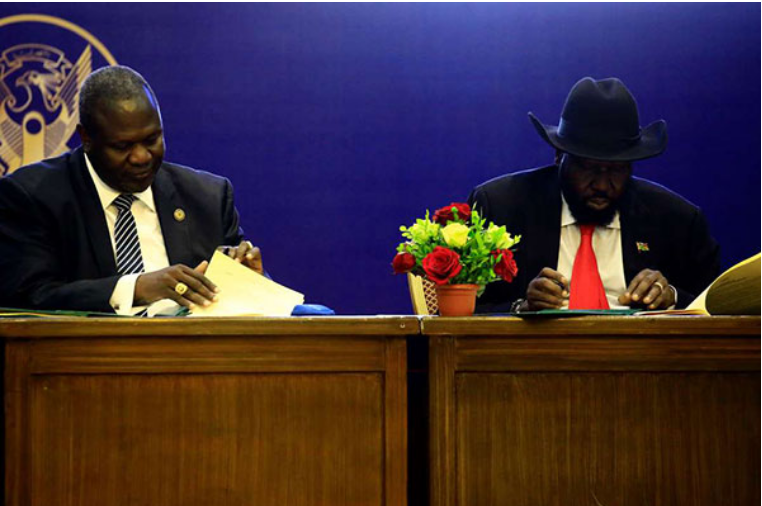
South Sudan’s main rebel group accuses government of violating ceasefire

South Sudan’s main rebel force SPLM-IO has accused government forces of attacking their defensive positions a day after both sides signed a peace deal, while the U.N. mission said one of its peacekeepers was shot and wounded by a government soldier.
President Salva Kiir signed a peace agreement with rebel factions in the Ethiopian capital on Wednesday to end a civil war that has killed at least 50,000 people, displaced some three million and held up the country’s progress since it gained independence seven years ago.
“The regime’s forces heavily stormed our position at Mundu in Lainya county,” said Lam Paul Gabriel, the rebels’ deputy military spokesman, in a statement seen by Reuters on Saturday.
He said the attack happened in the early hours of Friday and that eight government troops were killed in the ensuing battle. Another attack took place in Mangalatore, near the site of the first attack, where four government soldiers were killed, the statement said.
Both Mundu and Mangalatore are in Yei River State, close to the border with Uganda.
The United Nations Mission in South Sudan (UNMISS) said one of its peacekeepers from Nepal was shot in the leg on Saturday in Yei, the state capital, by a government soldier.
The peacekeeper was wounded when a soldier opened fire on a convoy of vehicles that left the U.N. base in the town in the morning to fetch water. UNMISS said the peacekeepers could not return fire due to the presence of civilians in the area.
“This direct attack on UN peacekeepers here to help the people of South Sudan is unacceptable,” said David Shearer, the head of UNMISS. “The perpetrator must be found and held accountable by government authorities.”
Government officials were not immediately available to comment.
The stability of South Sudan is important for Sudan and other neighbouring countries, who fear a new flare up of the conflict could flood them with refugees.
The civil war started in 2013, fuelled by personal and ethnic rivalries. The conflict has killed at least 50,000 people, many of them civilians, according to the United Nations.
An estimated quarter of South Sudan’s population of 12 million has been displaced and its economy, which heavily relies on crude oil production, ruined.






